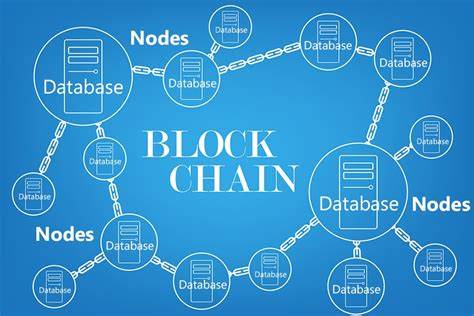Node:
In the world of blockchain, a node is an essential component that plays a crucial role in the functioning of the network. In simple terms, a node is a computer or device that is connected to the blockchain network and helps in maintaining the integrity and security of the network. In this article, we will explore what a node is, how it works, and its importance in the blockchain ecosystem.
What is a Node in Blockchain?
A node in blockchain is essentially a computer or device that is connected to the network and has a copy of the entire blockchain ledger. The blockchain ledger is a decentralized database that stores all the transactions that have taken place on the network. Each node in the network has a copy of the blockchain ledger, and every time a new transaction is made, it is verified by the nodes and added to the ledger.
Nodes can be divided into two categories: full nodes and lightweight nodes. Full nodes have a complete copy of the blockchain ledger, while lightweight nodes only store a subset of the ledger. Lightweight nodes rely on full nodes to provide them with the missing information when needed.

In a blockchain, there are several types of nodes that perform different functions:
Here are some of the most common types of nodes:
1. Full Node:
A full node is a complete copy of the blockchain ledger, which is stored on a computer. It is responsible for validating transactions and blocks, as well as broadcasting them to other nodes on the network.
2. Light Node:
A light node, also known as a SPV (Simple Payment Verification) node, only stores a portion of the blockchain data, allowing it to operate on low-powered devices. Light nodes rely on full nodes to validate transactions and blocks.
3. Mining Node:
A mining node is responsible for adding new blocks to the blockchain. It performs the Proof of Work (PoW) algorithm to solve mathematical problems and create new blocks, which are then validated by other nodes.
4. Masternode:
A masternode is a specialized node that performs additional functions beyond those of a regular node, such as facilitating instant transactions, voting on network governance decisions, and providing additional security to the network.
5. Validator Node:
A validator node is responsible for validating transactions and blocks in a Proof of Stake (PoS) blockchain. Validators are selected based on the amount of cryptocurrency they hold as a stake in the network.
6. Archival Node:
An archival node stores a complete historical record of all transactions and blocks that have ever occurred on the blockchain. It is useful for research and analysis purposes, but is not necessary for the normal operation of the network
How Does a Node Work?
Nodes work by communicating with each other to validate and verify transactions. When a new transaction is made, it is broadcasted to all the nodes on the network. Each node then verifies the transaction by checking if the sender has sufficient funds, if the transaction is valid, and if it meets the consensus rules of the network. Once the transaction is verified, it is added to the blockchain ledger.
Nodes also play a crucial role in the consensus mechanism of the blockchain network. The consensus mechanism ensures that all the nodes on the network agree on the state of the ledger. Nodes use various consensus algorithms such as proof-of-work (PoW), proof-of-stake (PoS), or delegated proof-of-stake (DPoS) to achieve consensus.
Why are Nodes Important?
Nodes are essential for the functioning and security of the blockchain network. Without nodes, the network would not be decentralized, and the integrity and security of the ledger would be compromised. Nodes help in validating and verifying transactions, ensuring that only valid transactions are added to the ledger. They also help in achieving consensus on the state of the ledger, ensuring that all nodes on the network agree on the same set of transactions.
Nodes also help in maintaining the decentralization of the network. Since each node has a copy of the blockchain ledger, there is no central point of control, and the network cannot be controlled by a single entity or organization. This makes the network more resilient to attacks and ensures that the data on the ledger is secure and immutable.
